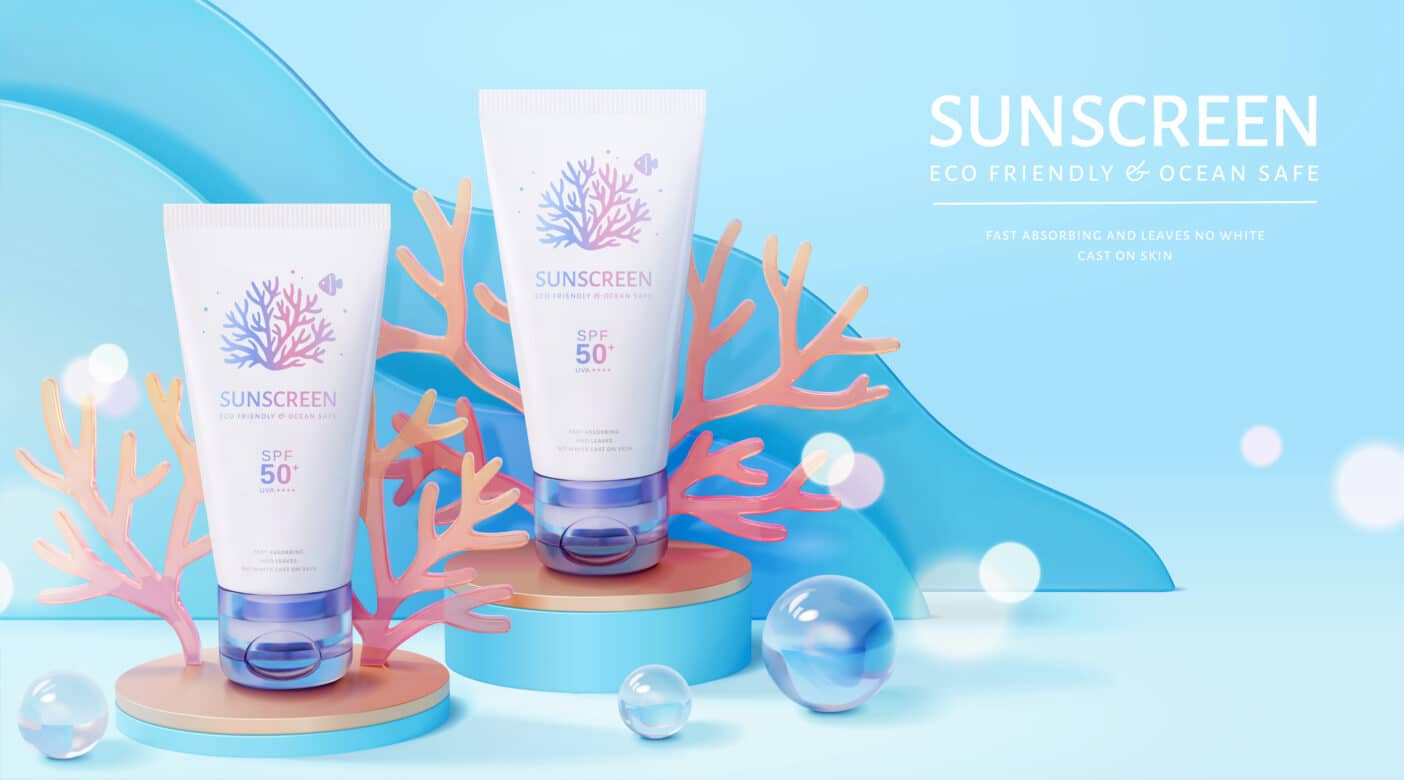Reef-friendly sun protection
If a product is certified, we as customers and consumers can be sure that it meets certain standards and norms. We then know that we can use the product without hesitation and that special criteria that are particularly important to us are met.

Certifications are particularly common in the cosmetics sector. They relate, for example, to animal welfare, the avoidance of microplastics and the protection of reefs. Reef-friendly sunscreen is no longer a rarity, and that's a good thing, because conventional sunscreen has a fatal impact on our coral reefs. This is mainly due to the UV filters it contains. Normally, however, certification is very time-consuming and cost-intensive for cosmetics suppliers. He must conclude a contract with the provider of the desired seal and may then submit his formulation first. This is strictly checked, and the seal provider may repeatedly ask questions about the raw materials used. This information must in turn be obtained from the raw material supplier. The whole process usually takes several months. And what businessman can afford such a long wait these days? We at Cosmacon therefore offer our own certificate, for which we have defined a much simpler and shorter processing procedure. This will enable reef-friendly sun shading to become even more popular in the future. But let's first clarify why reef-friendly sun protection is so important.
Reef-friendly sun shading as an alternative to conventional products
Coral reefs are among the most species-rich ecosystems of all. Although they cover just 0.1 percent of our planet's surface, they are home to 25 percent of all marine life. They are a safe place for these creatures to grow and thrive in peace. They also protect the coasts from so-called monster waves and erosion, as they form a kind of protective wall. In recent decades, however, the condition of our coral reefs has deteriorated drastically. The causes include global warming and environmental pollution. Many experts are now certain that the two UV filters octinoxate (INCI: Ehylhexyl Methoxycinnamate) and oxybenzone (INCI: Benzophenone-3) in particular, which are contained in countless sunscreens worldwide, contribute massively to the destruction of coral reefs by bleaching corals and promoting their death. Oxybenzone is considered to be particularly aggressive. It damages DNA, can deform cells, disrupt the growth of young corals and even kill entire coral colonies. And even in a vanishingly small amount: if you were to add just one drop of oxybenzone to a 50-meter water tank, this would have a demonstrably devastating effect on the corals in it. When you consider that up to 14,000 tons of sunscreen enter our oceans every year, it's no wonder that the reefs are suffering.
Hawaii passed a law to protect the coral reefs.
The Hawaiian Reef Act stipulates that sunscreens containing oxybenzone and octinoxate may no longer be sold in Hawaii and in some other US states. Instead, only reef-friendly sun protection is permitted there. The law came into force at the beginning of 2021. But what exactly is reef-friendly sun protection?
Reef-friendly sun protection: what makes it different?
Reef-friendly sunscreen is either biodegradable or free of the UV filters mentioned above. Anyone who uses it on their next visit to the sea is making a valuable contribution to the protection of coral reefs in the world's oceans. As ecological awareness is becoming more and more firmly anchored in the minds of consumers, the demand for corresponding products is also increasing. If you, as a cosmetics supplier, would like to offer your target group products with the Reef-Friendly Sunscreen certification, we at Cosmacon can support you. We have developed our own certification for which all raw materials are carefully tested by an independent safety assessor. You may of course use the seal for your products after testing. The entire process only takes a maximum of ten working days at Cosmacon. We will only charge you a one-off fee of 250 euros. Take advantage of this opportunity, because reef-friendly sun shading is becoming increasingly popular with consumers!
Reef-friendly sun protection with independent certification from Cosmacon.
At Cosmacon, we don't waste any time in ensuring that your reef-friendly sun shading receives a reputable certification. The check is carried out according to scientific criteria and the entire process takes place without annoying waiting times and hidden costs. Of course, we will be happy to answer any questions you may have before and during the certification process. Get in touch with us: So that reef-friendly sun protection can contribute even more to the protection of our reefs in the future.